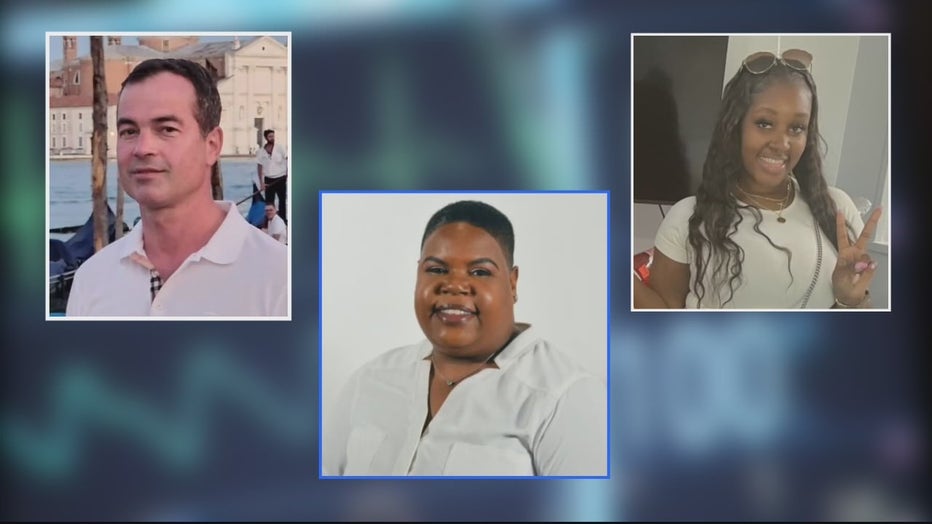Support for Detroit area medical professionals after three killed in past month

Three members of Detroit's medical field killed, help is available
Over the past few weeks, three different members of Detroit's medical field have been killed. While medical professionals serve the public, they may be neglecting their needs and that could have dire consequences.
DETROIT (FOX 2) - In less than a month, there have been three tragedies involving local healthcare workers – but help is out there for those in the medical field.
Since April 23, a neurosurgeon, health officer, and a nurse have all been murdered in Metro Detroit. Dr. Devon Hoover was found shot in the head multiple times inside his Detroit home; Oakland County Health Officer Dr. Calandra Green was found dead inside her Pontiac home, and Patrice Wilson was kidnapped outside of her hospital and later found dead inside her car.
The murders have shocked the area as they all had a profound impact on their families and communities.
It also adds a blanket grief to the already overwhelming job healthcare workers do on a daily basis.
Dr. Bryan Sexton is the Director of the Duke Center for Advancement of Well-Being Science at Duke University and has worked with the Michigan Health and Hospital association in the past on ways to help healthcare employees cope with on-the-job stress… burnout… and other types of emotional baggage.
"If your well being is compromised, your ability to do stuff is compromised and that includes to do something about grief and loss," Dr. Sexton said. "Healthcare workers in particular are one of the last groups to do something for themselves over someone else. They pour all their energy into helping others."
In a post-pandemic world, Dr. Sexton said those in the medical field are compromised.
"Every group that we’ve looked at, whether it be from a clinical role or a non-clinical role, anyone who works in healthcare relative to before the pandemic is much more emotionally exhausted," he said.
A survey from National Nurses United says at least 8 out of 10 healthcare employees, who were once heroes of our pandemic, have seen an increase in workplace violence against them. Add in the three recent isolated murders of local healthcare members, and it can tear at one’s well-being if not addressed.
Dr. Sexton says there are two types of ways to help.
"There’s really two categories of resources that we have to think about. One is the kinds of things that individuals can do for themselves. The other is the kinds of things institutions do for everybody,"
Dr. Sexton says ways to help include sitting down with a therapist, having a well-balanced meal, or finding ways to decompress.


